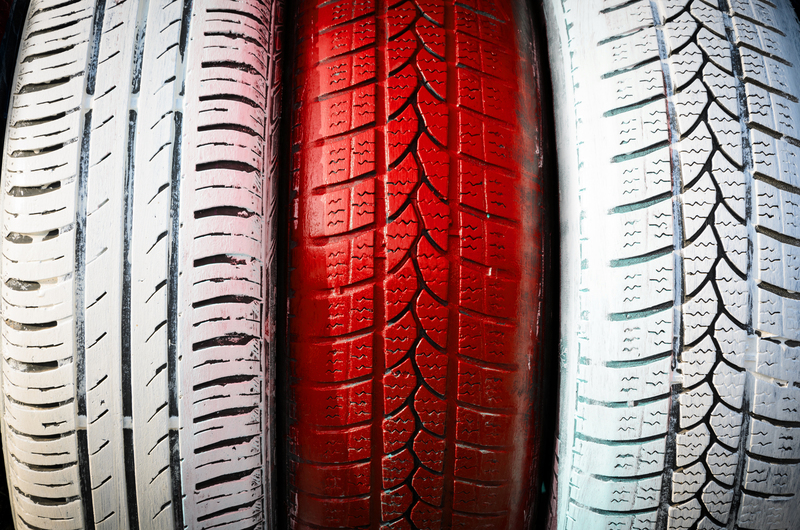How to Keep Costs Down When Disposing of Bulky Waste Items
Disposing of large, heavy, and cumbersome waste materials can be a challenging -- and often pricey -- task for households and businesses alike. Whether you're in the midst of a home clear-out, renovating an office, or replacing old furniture, finding affordable and environmentally responsible ways to handle bulky rubbish is essential. This comprehensive guide will walk you through multiple strategies to keep costs down when disposing of bulky waste items, all while highlighting eco-friendly options and ensuring compliance with local waste regulations.
Understanding Bulky Waste Disposal
Bulky waste refers to items that are too large or heavy for regular household rubbish collections. Common examples include:
- Old sofas, armchairs, and mattresses
- Refrigerators, washing machines, ovens, and large electronics
- Carpets, rugs, doors, and bathroom suites
- Garden furniture, bicycles, and exercise equipment
Given their size and weight, these items typically require special disposal methods, which can result in significant expenses if not managed wisely.

Factors That Affect the Cost of Bulky Waste Removal
Before delving into cost-saving tips for bulky waste disposal, it's crucial to recognize what contributes to pricing:
- Volume and Weight: Disposing of larger loads often costs more.
- Accessibility: Difficult-to-reach locations (flats, narrow alleys) may incur extra fees.
- Type of Material: Hazardous or non-standard items often require specialist treatment.
- Local Regulations: Rules on waste sorting, restrictions, and charges differ across councils and regions.
- Service Provider: Costs can vary widely based on if you use council bulky waste collections, private removal companies, or other methods.
Top Strategies to Minimise Bulky Waste Disposal Costs
By adopting a combination of the following approaches, you can drastically reduce your expenses when disposing of unwanted large items.
1. Try to Sell or Donate Before Disposing
One person's waste is often another's treasure. Rather than paying for removal, consider if items are still usable. Here's how:
- Sell online: List items on platforms like Gumtree, Facebook Marketplace, or eBay. Larger items like wardrobes and sofas find quick local takers, saving you both money and effort.
- Donate to charity: Many organizations accept large furniture and electrical goods if they're in decent condition. Some will even collect items for free.
- Offer for free: Use "freecycle" or "buy nothing" networks -- community groups where people share unwanted goods at no cost.
This method is eco-friendly, cuts down on landfill, and spares you disposal fees.
2. Utilize Council Bulky Waste Collection Services
Most local councils run bulky waste collection services. These are usually more cost-effective than private companies -- and sometimes free for certain items or households (such as those receiving benefits). However, check:
- What items are accepted (e.g., some councils refuse items like fridges, TVs, or construction rubble)
- Price structure -- some charge per item, others per collection
- Limits on number of collections per year
- Booking deadlines -- slots often fill up during busy periods
Plan ahead to avoid urgent private removals, which tend to cost more.
3. Explore Household Waste Recycling Centres
Council-run Household Waste Recycling Centres (HWRCs) -- or "tips" -- generally accept a wide variety of bulky waste for free or minimal charge to residents. For maximum cost savings:
- Transport items yourself or enlist friends (combine small loads to justify a hired van if needed)
- Check if booking a slot is required
- Be aware of site rules -- some limit trade or commercial waste
- Sort your waste (metal, wood, electrical, furniture) to aid recycling and possibly get lower charges
This DIY approach is ideal if you have means of transporting bulky items -- and the time.
4. Use Skip Bags for Flexible, Small-Scale Loads
Unlike traditional skips, skip bags (e.g., HippoBags) are cost-effective for disposing of one or two bulky items or small mixed loads. Benefits include:
- No permit needed if kept off public land
- Easy to fill at your own pace
- Cheaper than large skips and can be collected on demand
- Great option for flats or properties with limited space
5. Compare Multiple Private Bulky Waste Removal Quotes
If you need quick and easy service, several "man & van" rubbish clearance companies offer bulky item removal at competitive rates. To avoid overpaying:
- Use comparison platforms or get multiple quotes directly
- Check company reviews and ensure they're licensed disposers (ask for a waste carrier license number)
- Clarify pricing (per load, type of items, time windows, additional fees)
- Combine deliveries with neighbors for shared savings
6. Break Down Items to Reduce Volume
Disposal costs are often based on volume. Dismantling bulky items lets you:
- Fit more in a single collection/skip bag
- Transport in a smaller vehicle for DIY tip runs
- Potentially dispose of standard-sized pieces for free on regular pick-up days
Check guidelines for safe dismantling, particularly for electrical goods or items containing hazardous components.
7. Recycle When Possible
Many bulky waste items contain valuable or recyclable materials:
- Metal frames: Can be sold or taken to metal recyclers for cash back
- Hard plastics & wood: Accepted at numerous recycling centers
- Mattresses: Specialized recycling firms break them down for reuse
By choosing recyclers over landfill disposal, you not only save money (since landfill fees are higher), but also help the environment.
8. Don't Forget Producer Take-back Schemes
Some shops and manufacturers offer take-back schemes for items like appliances and mattresses when you purchase replacements.
- White goods: Retailers such as Currys or John Lewis may remove your old fridge or washing machine when delivering a new one
- Furniture: Large chains sometimes offer disposal for sofas or beds if you buy replacements
- Mattresses: Mattress firms often provide collection as part of the delivery fee
These services are usually cheaper than arranging separate disposal. Always ask at point of purchase!
Hidden Costs and How to Avoid Them
To keep costs low when dealing with bulky waste, you'll want to avoid common pitfalls:
- Fly-tipping Penalties: Never leave bulky waste on the street outside allocated collection times -- fines can be hefty.
- Unlicensed Collectors: Using rogue traders (often found on social media) may expose you to fines if they dump your waste illegally.
- Permit Fees: Placing a skip or large container on public highways usually requires a paid permit.
- Last-Minute or Out-of-Hours Charges: Rush jobs or weekend services may cost extra.
Plan in advance, use reputable providers, and understand all possible fees before booking.
Bulky Waste Disposal on a Budget: Example Scenarios
To make these tips more practical, here are real-world scenarios and the best low-cost disposal options for each:
Scenario 1: Furniture and White Goods After a House Clearance
- Option A: Donate usable items to charity; recycle what's broken at the HWRC.
- Option B: Arrange a council collection for a small fee, especially for residents in council properties.
- Option C: Take apart and combine as much as possible for a single man & van pick-up shared with neighbors.
Scenario 2: Replacing Old Mattresses and Bed Frames
- Option A: Take back to retailer when purchasing new mattresses (often free or discounted).
- Option B: Contact mattress recycling companies, who often charge much less than standard landfill disposal.
Scenario 3: Garden Overhaul With Large Green Waste and Garden Furniture
- Option A: Chop and compost green waste at home; save money and enrich your soil!
- Option B: Deliver timber and metal to recycling centers.
- Option C: Rent a skip bag for small accessible sites instead of a full-sized skip.

Frequently Asked Questions
-
How can I tell if my council offers bulky waste collection?
Visit your local authority's website or call their customer service number. Many councils publish booking info and fee structures online. -
Are there any charities that pick up furniture for free?
Yes! National charities such as British Heart Foundation, Sue Ryder, Cancer Research, and Emmaus regularly collect unwanted furniture at no charge if it's in sellable condition. -
Can I dispose of business bulky waste cheaply?
Business waste is subject to different rules and higher charges. Explore recycling, sharing skip space with local firms, or check whether your trade association has discounted waste schemes. -
What happens if an unlicensed operator dumps my waste?
You -- as the waste originator -- can be fined or prosecuted. Always ask for and check the provider's waste carrier license.
Summary: The Best Ways to Keep Bulky Waste Disposal Costs Down
- Reduce waste at source: Only dispose when absolutely necessary.
- Reuse and donate: Give items a new life through sale or charity schemes.
- Use local authority services: Book council collections early for lower fees.
- DIY disposal: Use your local recycling center and break down items where possible.
- Shop around: Always secure multiple quotes for private removal services.
- Combine loads: Share costs with neighbors for maximum efficiency.
- Recycle responsibly: Take advantage of specialist recycling schemes for large electricals, mattresses, and scrap metal.
By thoughtfully planning and leveraging the right resources, you can successfully manage the removal of unsightly, oversized junk without breaking the bank. Smart bulky waste disposal saves you money, benefits your community, and protects the environment -- a win for everyone involved!
